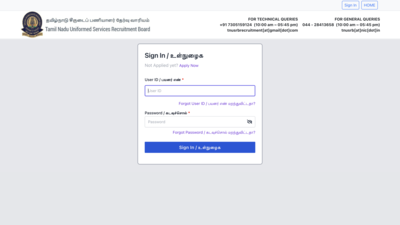What happens when phones are banned in schools: Studies show improved test scores, better attendance, and fewer distractions

A new study conducted in a Florida school district has revealed that banning mobile phones in schools can lead to significant academic and behavioural improvements. According to a report published by ABC News, the enforcement of a phone ban initially triggered a sharp increase in disciplinary actions, including suspensions. However, by the second year of the ban, test scores rose by 2–3 percentiles compared to the year before the ban, and student suspension rates returned to pre-ban levels.The study, released by the National Bureau of Economic Research and reported by ABC News, also found a notable drop in unexcused absences, contributing to the overall academic improvement. The research indicated that the impact of the ban was more evident in middle and high schools, where smartphone use is more prevalent. The study was based on data from one district and has not been peer-reviewed, but researchers stated it highlights how structured implementation and consistent enforcement of phone bans could influence student outcomes.Florida study reveals long-term academic impactIn the Florida district, the enforcement of the ban led to a “significant jump in student disciplinary incidents and suspensions” in the initial months, as reported by ABC News. Suspension rates more than doubled in the first month of disciplinary enforcement compared to the month before, and they remained 25 percent higher than the same period in the prior school year. The report stated that disciplinary measures “persisted throughout the rest of the school year and returned to pre-ban levels in the second year.”In that second year, test scores rose by approximately 2–3 percentiles. Researchers also noted a decrease in unexcused absences, which may have played a key role in the improvement in academic performance.UK study finds 6.4% rise in test scores after phone bansA 2015 paper cited by The Conversation examined the impact of phone bans in England using a difference-in-difference strategy. Researchers compared student performance in schools that banned phones to similar schools that did not. The study found that test scores of students aged 16 increased by 6.4% of a standard deviation after the implementation of a phone ban. This improvement was described as being equivalent to adding five days of instructional time per year.According to The Conversation, the benefits were significantly higher for low-achieving students, with no measurable effect on high achievers. The study concluded that phone bans are a low-cost policy option that can help close the achievement gap between students.Classroom distractions: Ringing phones and peer talk impact student focusA study published in the Pakistan Journal of Medical Sciences explored the effect of digital distractions in university classrooms. It found that 68% of students reported ringing phones as the most common electronic distraction, while 21% stated it was extremely distracting. Additionally, 72% of students cited peers talking in class as the most self-generated distraction.The study concluded that both external and internal distractions—including mobile phone use—negatively affected students’ ability to concentrate, especially among fifth-year students. The researchers recommended monitoring classroom behaviour to enhance focus and learning outcomes.US research shows academic and attendance improvementsIn a working paper published by the National Bureau of Economic Research, researchers David N. Figlio and Umut Özek studied the impact of mobile phone bans across Florida. Using building-level Advan data to assess pre-ban phone use, the study found significant improvements in test scores by the second year of the ban, especially in middle and high schools.The research also reported a decline in unexcused absences and an initial rise in suspensions—particularly among Black students—during the first year of enforcement. These disciplinary issues declined over time, pointing to an adjustment period followed by stability and academic improvement.Use of Yondr pouches in US schools reports positive feedbackAs reported by Scientific American, many US schools, including those in New York and Los Angeles, have adopted tools like the Yondr pouch to enforce mobile phone bans during school hours. According to Yondr, over 80% of schools using the pouches reported increased student engagement. Some schools also observed improvements in academic performance and classroom behaviour.Though long-term research is still developing, the article noted that reduced access to phones appeared to contribute to fewer distractions and less bullying in classrooms.A growing shift in global school policiesWith 20 US states and territories, including Washington, D.C., adopting classroom phone bans—while others delegate policy decisions to local districts—the debate over mobile phone use in schools continues. The collective findings from Florida, England, Pakistan, and other regions provide mounting evidence that restricting phone access during school hours can result in improved academic outcomes, higher attendance, and reduced classroom distractions.






